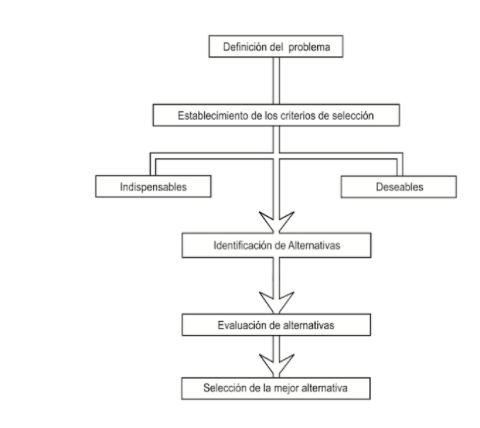We are experiencing tough business times as a result, among other things, of the increase in energy prices. The companies for be sustainable They need to have positive benefit or utility, which is nothing other than:
PROFIT = INCOME – EXPENSES > 0
The lack of profit or losses If it continues over time, it will inexorably put the company in a situation of lack of liquidity that can lead to important issues of treasury, including bankruptcy proceedings.
To prevent this from happening, the survival of companies sometimes requires Reduce costs. Perhaps we are afraid to change things due to the inertia that they have always been that way, but we have to let go of past conditioning and think with a blank page.
In these difficult times we have to rethink how we would like everything to be if we started the company today, without past burdens that correspond to expense and income structures of other times.
Once we have identified what is making us spend without generating a return, we have no choice but to rethink it.
The cost reduction Normally it is not a popular measure because it is associated with giving up or removing privileges that had been had until now, even eliminating staff, but I assure you that costs can be reduced in a different way, to "win, without losing anything in return."

How to make your business as profitable as possible?
I throw you 6 questions I hope they serve you well reflection to improve profitability of your companies.
- How many times have you felt that you were doing things that did not contribute or report to anyone and you continued doing them out of mere routine, or because you did not dare to change?
“IF YOU ARE CLEAR, STOP DOING IT”
The fact that we have been assuming it forever is no argument for continuing to maintain these unnecessary expenses.
The first key to reducing costs judiciously is think about processes that do not add value, unnecessary bureaucracy which only complicates our existence and detracts from our benefits.
When budgetingIn many cases, we limit ourselves to taking what we spent last year, multiplying it by a number and with that we decide what we will spend next year. But this is not the way, but to question the use and return of each euro and see if it is really useful to continue doing so.
- Have you discovered identical jobs that are being carried out in different areas or departments, doing things double, triple...?
“IF YOU HAVE IDENTIFIED IT, RE-DEFINE”
We must see the company as a series of processes that are concatenated. It identifies inter-relationships between sections, departments and workflows, and in these links it detects duplications that can be eliminated and areas for improvement. Integrate, automate, eliminate manual labor that is duplicated and you will see that your profit increases sustainably.
- Since when have you not updated the inventory of your company's warehouses, identifying and deregistering what is obsolete and reviewing its management?
“IF YOUR WAREHOUSE IS A DISASTER, GET ORDER”
Stock and its management can be a very heavy burden and will be even more so if we are financing these goods with external resources. Planning, reducing and improving inventory control will mean a significant reduction in financial and non-financial costs.
- Does budget preparation become a cockfight where no one is willing to eat less of the pie than the previous year or their office colleague?
“IF YOU ARE GOING TO BUDGET, QUESTION EVERY CENT”
The whole is the sum of many few. To improve your profitability, try to make small savings and you will see how the effect on overall results is spectacular. Benjamin Franklin said: “Take care of small expenses, because a small hole can sink a ship.”
- Have you ever added up the weight of insignificant expenses, analyzed the effect on overall profitability?
“IF YOU FEEL THAT IT MAY BE TRUE, ANALYZE AND ACT ON THE FEW”
The desert is made up of tiny particles of sand, identify these few that can mean a lot of moneyDo you feel that the leader's loneliness prevents you from implementing the spending restriction measures that you are convinced your company needs?
“IF YOU FEEL ALONE, SHARE WITH YOUR PEOPLE”
Make the team aware of the need to reduce costs, be transparent about the company's situation, ask them for help to identify where you should cut. A company is too heavy a ship to try to carry alone and everyone must row in the same direction. You don't have to win, but rather convince that you have to take action in the fight against waste.
- Are you clear about the agreements that exist on current and financial expenses and the effect that reviewing them would have?
“IF YOU HAVEN'T RENEGOTIATED IN A LONG TIME, YOU ARE LOSING MONEY”
Before cutting back, renegotiate with your suppliers and group all purchases of the same nature into a single supplier, in order to achieve discounts for volume purchases. Save by planning and reducing items on non-strategic expenses that occur constantly and we do not give importance such as: stationery, messaging, travel, cleaning, etc. And while we're talking, don't forget the bank, which is another supplier that supplies us with money; Financial costs and bank commissions are also susceptible to re-negotiation.

Advantages of reducing costs
In our homes, when we have a savings culture, it gives us great satisfaction to break “the piggy bank” and see what we have generated thanks to our good sense. The same will happen in companies when we quantify the impact on the income statement of cost reduction and control measures.
We are not talking about being miserable, but about the rational use of resources seeking effectiveness, efficiency and effectiveness in order to obtain the desired results with the best possible use of resources.
It may not be necessary to make great revolutions by reducing costs if we achieve:
- Manage with quality information relying on integrated management systems.
- Act as soon as we detect the inefficiency.
- Implement order by optimizing processes.
- Train and educate the team that each of their actions must generate value and that all expenses must have a positive return. Turning each person on the team into managers of their area of responsibility.
- And having in the DNA of the organization that the path is “continuous improvement”, therefore, we must constantly question whether we have chosen the best route to do things.
IF YOU ALREADY KNOW WHAT NEEDS TO BE DONE AND YOU DON'T DO IT, THEN YOU ARE WORSE THAN BEFORE”
Confucius
All plans are meaningless if they are not subsequently implemented. take action and there is control where the compliance with established plans. It is of no use to design and implement brilliant cost reduction actions and then they remain mere pieces of paper in a drawer.
Educating and raising awareness about spending control means “being on top” until create the habit of saving and non-waste, so that it is the guideline of all people we collaborate with.
Now, more than ever in times of pandemic, when income has decreased significantly For many companies and there is uncertainty about the future, it is time to exhaustively analyze our expenses and have an ant culture, rethinking past cost structures and reconstructing them based on the circumstances of the current complex environment. In many cases this exercise of reducing disbursements can be vital for our survival.
And to conclude, I present to you issues that will help you decision making to reduce costs.

- Is it possible to do things differently?
- Is it possible to replace what we do with something different
- Is it possible to take as an example what other people do or adapt it?
- Is it possible to put a new spin on old ways?
- Is it possible to reorder what we currently do?
- Is it possible to change methods or functions?
When talking about reducing costs we are talking about ensuring the company survival because just as the wise Benjamin Franklin said:
“He who buys what is superfluous will soon be forced to sell what is necessary.”
Benjamin Franklin




































